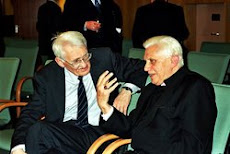Henrich in his critique of Habermas regards him as a Philosopher of harmony who does not face the discordant character of modern forms of life and through his conception of lifeworld avoids the question of how to overcome these inevitable discords that characterise modern life. “Lifeworld” according to Henrich is a term “which has this avoidance written into its profile.” (Dieter Henrich, "What is Metaphysics - What is Modernity? Twelve Theses against Jürgen Habermas" in Habermas: A Critical Reader, p. 298).
Habermas in his reply however characterises lifeworld as a “naturelike wellspring for problematizations of (the) familiar background to the world as a whole. . . .” (Postmetaphysical Thinking, p.16 ). Thus lifeworld has dual character, on the one hand it is a taken for granted background without which no argumentation, agreement or dissention is possible (ibid; p. 38), on the other hand it is also a wellspring for unceasing problematization (this would vary from lifeworld to lifeworld of course).
Henrich, however, takes only one side of lifeworld and accuses Habermas’ of avoiding the problem of incessant and inherent discords by presupposing false complacencies. In this regard Henrich urge us to recall the “way in which the metaphysical projects of modernity are constructed”:
“It is clear that all the subsequent theories which derived from Kant’s thought aimed to serve the spontaneously emerging thinking, and resolve the conflicts, of a form of life oriented by reason, and that they acknowledged the task of justification . . . . What made them so impressive, and gave them their superiority, was not an abstract notion of the Absolute as a supersynthesis. It was rather the way in which they were able to disclose the dynamics of conscious life and to render it more transparent to itself – a life which has to begin amidst conflicts which are irresolvable at the first level. Although they took their inspiration from Kant, they also incorporated impulses deriving from Rousseau, the theorist of conflict par excellence.” (pp. 300-301).
Here Henrich seems to be counterpoising Habermas the thinker of harmony and avoidance of conflicts to Rousseau the "theorist of conflict par excellence". It is interesting to note that while some of the vast literature on Rousseau in the English language has emphasised the ‘theorist of conflict’ side of Rousseau most literature rather characterises Rousseau as a thinker not of conflict but a thinker who suppresses plurality and dissent and tries to impose monolithic concepts to forge harmony.
Many people have compared this homogenising Rousseau with Habermas whose conception of consensus as the aim of mutual understanding has been interpreted as aimed at a similar sort of homogenisation.
Patchen Markell in his excellent article “Contesting Consensus: Rereading Habermas on the public sphere,” Constellations Volume 3, No 3, 1997: 377-400, goes a long way to dispel this stereotype of Habermas as the thinker of consensus (as against conflict and dissent). Markell in this respect stresses the importance of focusing on the process of communication and not just on the end product (agreement). He also emphasises the importance of ‘unpredictability’ and ‘openness’ in Habermas’ account of communicative action. Markell also stresses the reflexive and fallible character of communicative action in Habermas. The whole essay is worth reading. I will try to comment on portions of the essay in future posts.
Subscribe to:
Post Comments (Atom)





No comments:
Post a Comment